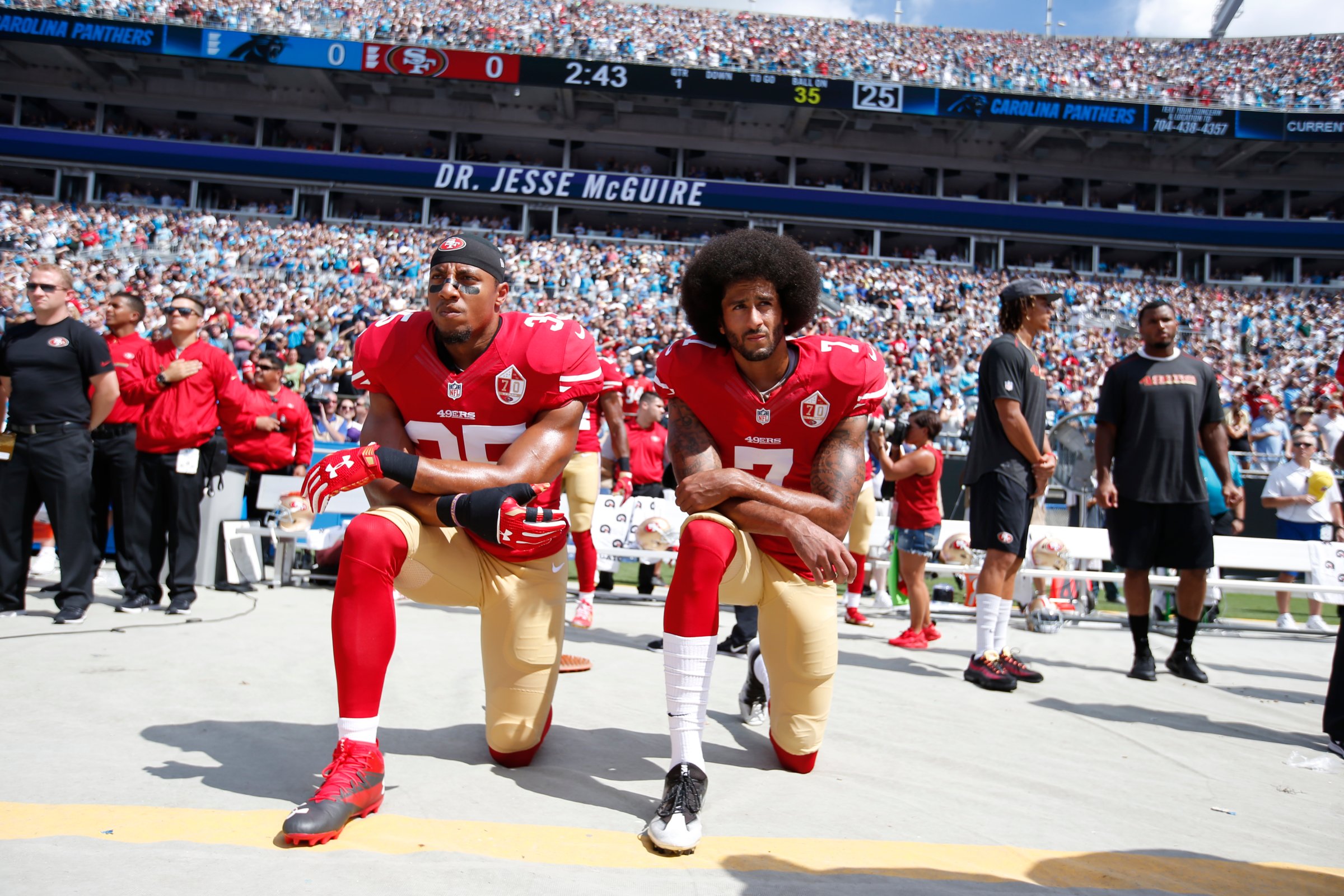
The idea that Colin Kaepernick’s refusal to stand during the national anthem is unpatriotic fails doubly: first, in a mistaken notion of what real patriotism is, and second in missing a larger point.
For one, the idea that to not stand while the anthem is played signals a lack of allegiance to one’s nation is simplistic to the point of stretching plausibility, seemingly designed more as a way to hate on someone than to grapple with the complexities of the real world. Is patriotism a matter of either/or? Perhaps in terms of military service, although we find gray lines even there.
Elsewhere, however, critique and even scolding are fundamental facets of loving. What would be unpatriotic of Kaepernick, given his views, would be to refrain from sitting out the national anthem out of an unreflective sense of patriotism as an on/off switch. Kaepernick thinks his country is capable of changing and wants to help it do so.
How else was he supposed to say so in a way that would get attention, which is rather basic to contributing to an ideological moment? Was he supposed to tweet? Say some stuff in locker-room interviews? No. The writer pens editorials. The artist crafts portraits, music or plays. The community activist marches. The athlete might wear a certain kind of shirt—or sit out the national anthem. To tar him as a traitor to the nation is as flimsy as calling a white person a racist for wearing dreadlocks.
We must understand what Kaepernick is protesting. The tension between black people and the cops is not just one more race issue roiling the nation: it is the key one. It is the central cause of black people’s sense of general alienation, the first thing that comes up when you ask black people why they think racism defines their lives. It was what the Panthers were all about, what gangsta rap was all about, what the O.J. Simpson vigilante-justice verdict was all about, and it’s no accident that today’s most prominent civil rights effort, Black Lives Matter, began as a protest against the cops. The sense of the cops’ authority as illegitimate only makes it easier for underserved black men to seek employment on the black market of drug sales. The cop issue helps destroy black communities.
Nor is any of this new. In James Baldwin’s writings from the 1940s on, for example, cops loom as ominously as in any journalistic report from last year. And this is why we must resist the notion that black people need to get over it just because the cops kill as many white as black people (relative to their population, black people are still more likely to be shot). In our times, the idea that cops simply kill out of conscious racism doesn’t really stand up–it’s a much more complex problem. But in black communities, communal memory of openly racist cops in the not-so-distant past is still a raw wound.
As such, frankly, whether we like it or not, the idea of cops as racist–held by many whites as well as blacks–is not going to change. Black history makes it almost impossible not to sense or suspect racism in grisly episodes like what just happened to Terence Crutcher in Tulsa, Okla. However, all is not lost. If we can make it rare to nonexistent that the cops kill any unarmed people, it will save white lives and black ones alike. And what will seem important in the historical sense is not settling scores as to whether and how much things were or are due to racism and in which ways, but that black people do not sense the cops as an enemy. America will never make any serious progress on the race question until this happens.
This, then, is what Colin Kaepernick is addressing in refusing to stand for the national anthem. He is making a statement about civil rights and moral progress, and he is breaking no law. He is neither saying that he’d rather live in Afghanistan nor that the U.S. is a worthless experiment. He is thinking, and his critics might follow his lead.
More Must-Reads From TIME
- The 100 Most Influential People of 2024
- The Revolution of Yulia Navalnaya
- 6 Compliments That Land Every Time
- What's the Deal With the Bitcoin Halving?
- If You're Dating Right Now , You're Brave: Column
- The AI That Could Heal a Divided Internet
- Fallout Is a Brilliant Model for the Future of Video Game Adaptations
- Want Weekly Recs on What to Watch, Read, and More? Sign Up for Worth Your Time
Contact us at letters@time.com